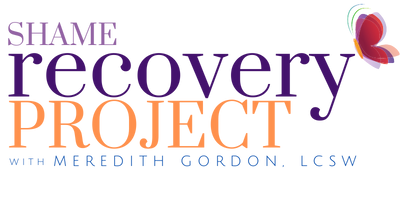I have heard otherwise book smart—though not emotionally intelligent—people say that it is important to understand one’s complicity in the abuse that happened to them.
This is baffling.
Being told to “take full responsibility*” for bringing on the abuse is a mind bender. But it happens to people who have endured sexual abuse, physical violence, and emotional torment.
No, you were not complicit. But people say it. I’ve heard it. Then they follow up with something like: “Your thoughts create your reality.” Or, “your unconscious mind brought on the abuse.”
If they do, take a step back, and do not take it personally.
Your recovery does not include someone else’s poor assessment of why it happened to you.
Learn to understand what they don’t
First of all, they don’t understand how the unconscious mind works. Yours or theirs. Which is unfortunate for both of you.
For starters, the unconscious mind is vast and deep and, to put it as simply as possible, does not work in a linear or cause-and-effect way.
In fact, it might be the opposite of what they say—that your unconscious mind protected you from something even worse happening.
When they sound logical
When you’re processing difficult material everything can feel a bit shaky inside. This is natural. We want to keep the process moving. When you feel a bit shaky about all this processing, it is easy to be lured in when someone sounds either commanding or judge-y, or, conversely, new age-ey or “empowerment focused.”
But such statements have the opposite effect. They shut down processing and they shut down conversation, both of which are far from empowering. This can happen when they are scared (and don’t realize it), and are not in a space to receive the personal information you’d hoped to share. They try to “fix” by throwing “fixes” that don’t work your way. On one level this is a means of trying not fathom that abuse happens to those who are altogether innocent and, by proxy, might happen to them or someone they love.
If you’ve found yourself in this situation, please don’t despair. it happens. Use it to become aware for next time.
It might sound like…
“Your thoughts must have been to blame” “do you think you attracted the abuse inadvertently?” “you need to take responsibility for the abuse you endured when you were a child” (what??) “you need to see your complicity” (again, what??).
People who are trying to make sense of their trauma even do it to themselves. I’ve heard people say they were trying to see how they were complicit in their own abuse. To that I’ve said, gently, firmly, that, no, you weren’t. If you’ve ever detoured down this road, please remind yourself of the same.
The type of “positive-thinking, I-own-my-destiny” rhetoric can actually distract a person from themselves which creates anxiety. But it can be hard to know what is happening because the positive thinking sounds so, well, positive. It sounds so correct. But when you are authentically dealing with the pain, the gift is being there for it. Being present for the pain let’s it be seen. Letting it be seen gives it a voice. Giving it a voice means it’s not trapped inside you. This means it can be examined and worked with and integrated and used for growth. When one cannot explore the betrayal because the fear of getting mired in the pain feels to big, the pain doesn’t disappear. It gets pushed around inside, and kind of expands. This is what I think is meant by “trapped in the pain.” This is why pat, new-agey-type answers ultimately do not hold the solutions.
What can you do?
Remember that *this has nothing to do with the self-blame that often accompanies trauma, and that many people victimized by sexual, physical or psychological trauma feel. But the latter, as opposed to the former, is as an act of self-preservation.
This type of self-blame can be used in trauma-informed work with a therapist who understands trauma, to help those who have endured a violation integrate to serve your deepening and growing.
Find the ways and the words and actions that speak to your soul—and how your soul speaks to you.
Be curious about how to give love and compassion and a quiet “listening” to yourself.
*During a traumatic event and immediately afterward, the person victimized may assume responsibility for what happened to them. This is a common and natural trauma response, a form of active self-preservation that allows the individual to get through the trauma. Once the traumatic event is over, residue from that natural trauma response can (and usually does) carry over. Part of trauma-informed care is detangling from that initial self-blame and seeing it as an act of self-preservation, necessary at the time. We can thank our instincts for getting us through. Doing so allows us to integrate the experience and grow from it. It has nothing to do with being at fault.
Photo by Lucas Pezeta
